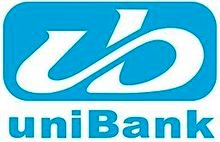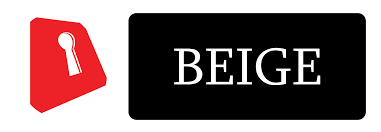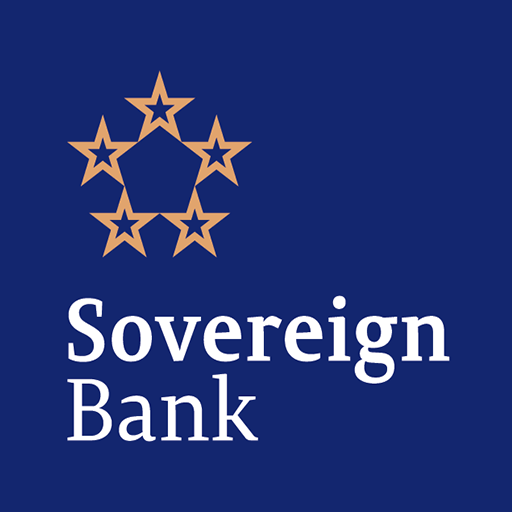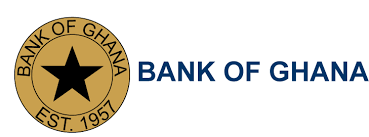A survey of the reporting of the still on-going issues surrounding the banking sector in Ghana reveals that many of the problems associated with the banking sector have been attributed to ‘weak corporate governance’[1]. A careful examination of the facts surrounding the collapse of the seven banks over the last two years shows that at the core of the alleged misconduct are several allegations of unscrupulous related party activities. If this be right, it is important to understand the nature of these unscrupulous related party activities and to determine the efficacy of the regulatory framework for dealing with it.
This short article aims to discuss and hopefully answer these three connected questions.
- What exactly are these ‘related party activities’?
- How are they alleged to have contribute to the collapse of the seven banks over the course of 2017 and 2018; and
- What is the regulatory framework for dealing with these activities?
Related party activities
The Bank of Ghana which is tasked with regulatory responsibility for the financial sector[2]identified weaknesses in the banking sector going as far back as 2015. It has stated that much of the problems in the recent collapse of banks was a result of ‘poor corporate governance and risk management practices’[3]. A close study of these transactions however reveal that related person or party transactions were often at the core of the poor risk management and corporate governance practices in the banking sector.
A related party transaction (RPT) is a ‘business deal or arrangement between two parties who are joined by a pre-existing special relationship’[4]. This includes a transaction between a majority shareholder or entities associated with it and the bank. More particularly, a related party in the context of the Ghanaian banking regulatory framework means a “corporate entity in which
a) The Regulated Financial Institution or any of its Directors or Key Management Personnel have equity interest of at least 5%;
b) A director(s) of the Regulated Financial Institution also serves as a director(s) of the company/entity;
c) A director or Key Management Personnel of the Regulated Financial Institution has influence in the company/entity.”[5]
Closely connected is the definition of related personswhich is formulated to include ‘a spouse, son, daughter, step son, step daughter, brother, sister, father and mother, cousin, nephew, niece, aunt, uncle, step sister and step brother of a shareholder, director or Key Management Personnel[6].’[7]
Related party (person) transactions (RPTs) are not by themselves illegal. Their existence however is often fertile ground for conflict of interest exploitations and other corporate governance risks and concerns. This is because these transactions, including loans and advances, may not always be supported by sound risk assessment. Pressure is capable of being exercised by the related parties at Board level or over senior management of the banking entity. The independent evaluation and reporting of RPTs is therefore systemically important in the financial sector.
The risks associated with RPTs are particularly more pronounced in non-listed financial institutions with high majority shareholding, family ownership or where shareholding is limited to a few business associates. This is simply because the ability to exercise control over board and senior management decision-making is even stronger. Additionally, they are often not subject to further stringent disclosure and reporting requirements of an exchange. While these are wholly internal corporate governance issues, their regulation is nonetheless crucial to a sound financial system. Banks, as very special companies, contribute significantly to systemic risk.
Instances of unscrupulous related party activities in the recent crisis
The first of the interventions by the BoG occurred in August 2017 when UT and Capital Banks were made to cease business and some selected assets and liabilities of both banks were acquired by GCB Bank under a Purchase and Assumption Agreement approved by the BoG. A year later in August 2018, the banking licenses of uniBank, Royal Bank, Beige Bank, Sovereign Bank, and Construction Bank were revoked and their businesses assumed by the new bank established by the Government of Ghana, Consolidated Bank Ghana Limited. These banks were identified as displaying evidence of vulnerability due to inadequate capital and a high proportion of non-performing loans. This followed an Asset Quality Review began by the bank from 2015.
Beyond the contributions from general macro-economic factors, unscrupulous related party activities were at the heart of the crisis. A few examples will reveal why the regulation of related party activities will be crucial to the on-going work to sanitise the Ghanaian banking environment.
uniBank Ghana

Following the appointment of KPMG as Official Administrator for UniBank, it reported in June 2018 that loan advances to shareholders and related parties totaled GHS 1.6 Billion. In addition to this, shareholders and related parties had received a total of GHs 3.7 Billion outside of the normal credit delivery process and which was not reported as part of the bank’s loan portfolio. These advances to the shareholders and related parties totalled GHS 5.3 Billion, representing three-quarters of the Bank’s total assets.[8]More recently in January 2019, an assessment of inventory of assets and property by the receivers of uniBank Ghana Limited ‘has revealed that a significant number of facilities advanced to related and connected parties had incomplete or no loan origination documents’. Beyond these, the report by the official receiver suggests that ‘gross related and connected party loans and advances were GH¢1,937 million, of which GH¢0.2 million (0.01%) were classified as performing’.[9]Post-impairment adjustment figures suggest that GH¢ 5.4 billion is still due to UniBank from its related parties. These figures represent at least 2% of the entire National Gross Domestic Product of Ghana.
The worrying part of this assessment is that significant portions of these assets represented interest free loans and other advances to RPTs. This made uniBank ‘cashflow insolvent’ and caused it to continue to rely on liquidity support from the Central Bank.[10]
Royal Bank

With respect to Royal Bank, it was revealed that its exposure to related parties totalled GH¢ 161.92 million which was ‘structured to circumvent single obligor limits, conceal related party exposure limits and overstate capital position of the bank for the purpose of complying with the capital adequacy requirement.’[11]
Beige Bank Limited
Beige Bank had, through its holding group and associated companies, misrepresented the true status of its capitalization. In particular, an amount of GH¢163.47 million belonging to the Bank was passed through its affiliated asset management company and then passed on to its parent company. They had then purported to reinvest this very sum as part of the bank’s capital in violation of the law. This placement amounted to 86.86% of the Bank’s net funds as at June 2018; which was far in excess of the regulatory limit of 10%.[12]

In January 2018, and only one month after its commencement of banking operations, Beige Bank had already breached its cash reserve requirement (CRR) of 10%. On 23 July 2018, its CRR stood at 1.97% with non-performing loans ratio of 72.80%.[13]This is bewildering, to say the least and the Regulator’s complicity in such lapses should form a part of the reform process.
Sovereign Bank Limited
Following its licensing, a substantial portion of the bank’s capital was placed with another financial institution as an investment. The Bank was not however able to recover this placement. It has emerged that this investment was liquidated by the shareholders or parties related to them. It also emerged following checks by the regulator that the promoters of the Bank did not pay for the shares they acquired in the Bank.[14]

What is often not considered in these transactions is the continuing tradition of loans to bank staff. For example, some of the related party loans classified as performing are largely due to staff loans. UniBank alone was said to carry GH¢48.8 million of this risk. That represent over 10% of the new minimum capital requirement set by the regulator. The receiver for the five banks projects that it is unlikely that these losses can be recovered.[15]
The regulatory framework for dealing with unscrupulous related party activities
The main framework for banking regulation generally is the Banks and Specialised Deposit-Taking Institutions Act, 2016 (Act 930). This was passed to replace the Banking Act, 2004 (Act 673) and its unwieldy 2007 amending Act[16]. The need to consolidate and update the 2004 Act was by 2016 long overdue. The banking sector had seen a rapid increase in the number of banks and the range of services being provided. A newer, clearer and more robust regulatory framework was therefore in dire need at the time of the passing of Act 930.[17]
The Bank of Ghana has power under Act 930[18], as it did under the previous Act[19], to issue directives on a host of issues related to banking. The use of directives as a regulatory technique allows for greater detail and ease of amendment than would the passing of a very detailed Act and a series of amending Acts. Banking is a continually changing environment and there is an almost constant need to update regulation and review supervisory techniques to meet new realities and new risks.
It will seem however that the power to issue directives under the 2004 Act was not used very actively. In the last 16 months, the BoG has issued a flurry of directives to support the framework under the Act.[20]This is highly commendable as it provides clearer guidance beyond the fairly limiting, and reasonably so, general framework under the parent Act.
We will now examine the prescriptions within Act 930 that are relevant to regulating related party activities. The first means are the powers given the BoG to regulate the ownership and control of banks. The ‘Ownership and Control provisions’ under Act 930[21]are now more enhanced than they used to be[22]. Particularly since banks are now often part of a group level holdings, banks are required to furnish the BoG with a minimum twice yearly report that details among others the organizational structure of the corporate group of which the bank is a member.[23]Particularly, this information must itemize the ‘direct and indirect affiliates and associates of the bank’[24]and ‘the nature of the relationship between the affiliates and associates and the group’[25]. There are also now registration requirements limiting how banks can become a subsidiary of a financial holding company. An acquisition, whether directly or indirectly of more than five per cent of the voting shares of a bank, may only be properly achieved with the prior written approval of the Bank of Ghana.[26]These represent new language that were not previously a part of the law.
The application for registration as a bank or financial holding company contain prescriptions that can contribute to further reducing related party risk but only with effective supervision and continuing review of compliance. Key management personnel must be ‘fit and proper’ and are required to have the ‘integrity, qualification and experience for the positions given the business plan and activities’ of the bank.[27]In furtherance to this, the BoG issued the Fit and Proper Directive (FPD)[28]as an “exposure draft”[29]in July 2018. The FPD provides criteria to guide regulated financial institutions and the BoG in determining whether a person is fit to be appointed a director, constituted a significant shareholder or to hold a key management personnel role. The focus on significant shareholders is important. Without this requirement, scrutiny of a significant shareholder who is not an executive director will be limited. They wield considerable influence behind the scenes and are likely to increase the risk of the negative consequences of RPTs.
In appropriate cases, the BoG may also restrict the investments by financial holding companies in banks.[30]Even more far-reaching is the power given the regulator to require restructuring of ownership where a bank is controlled by persons acting in concert or where it determines that the structure of its corporate group ‘hinders effective supervision on a solo or consolidated basis’.[31]The statutory rules are further supported by the Financial Holding Companies Directive issued by the BoG in July 2018.[32]With respect to RPTs, the Financial Holding Companies Directive provides further rules on limits on insider-related transactions and acquisition of subsidiaries. These limit the banking subsidiary of a financial holding company from granting a financial exposure to its parent or related interests where the aggregate of the financial exposure exceeds 10% of the net own funds of the bank.[33]In acquiring subsidiaries, a financial holding company must satisfy the Bank of Ghana that it has adequate ‘free-fund’ capital to carry out the acquisition.[34]These prescriptions are crucial to prevent those RPTs that are likely to put depositors’ funds at risk. The Beige Bank transaction with its parent company earlier identified is an example of a type of transaction that these rules should have prevented.
As part of the ‘ownership and control’ powers, the BoG has powers to prescribe rules regarding ‘any matter of corporate governance’ to ‘ensure prudent operation’ of a bank.[35]In the last two decades and more so after Enron, corporate governance has continued to receive industry attention and academic enquiry. The regulatory techniques adopted to ensure that the corporate form is not used to create wider systemic problems has been both ‘regulator-led’ and industry self-regulation. A good example of the ‘regulator-led’ framework is the UK Corporate Governance Code[36]issued by the Financial Reporting Council.
In response to the risk of RPTs, the Board of a bank must report to the BoG if it has reason to believe that the bank ‘is exposed to or involved in an event that is likely to have a material adverse impact’ on the bank.[37]Significantly, cross-directorships of banks are still prohibited under the new framework.[38]The previous restriction to employees of other banks acting as directors of another bank[39]is now removed. Beyond the competence of directors under general and banking laws[40], a person is also precluded from becoming a director of a bank if that person ‘has defaulted in the repayment of the financial exposure of that person.’[41]This is a new addition to the disqualification criteria. In this way, related parties carrying a continuing financial risk are prohibited from acting for banks.
The disclosure of interest requirements by persons seeking to assume office as a director or key management personnel of a bank in the 2004 Act[42]are repeated under Act 930.[43] By these requirements, these persons are required to declare their professional interests and investment or business interest. These are required with ‘a view to prevent a conflict of interest with their duties to the bank.[44]To meet this objective the BoG issued the first Corporate Governance Directive (CGD)[45]under Act 930 in March 2018. Following industry feedback and internal consideration, the BoG reviewed and reissued the Corporate Governance Directive[46]in December 2018. The latest CGD provides specifically for related party transactions by requiring the Board to ‘ensure that transactions with related parties (including internal group transactions) are reviewed to assess risk and are subject to appropriate restrictions….’[47]In all cases, a bank may not appoint a Chief Executive, Deputy Chief Executive, key management personnel or director without the written approval of the Bank of Ghana. Where the BoG forms the opinion that a director is not a fit and proper person it may after hearing representations from the bank direct the removal of that director and a bank must comply with such a directive.[48]
Act 930 contains provisions on restrictions on lending and investments[49]and accounts and audit[50]that are relevant to the regulation of RPTs. This forms the second leg of the framework for regulating RPTs beyond the ‘Ownership and Control’ provisions earlier discussed.
Lending to and investment with affiliates, insiders, directors, significant shareholders and other related parties are significant source of financial risk to banks. The recent crisis provides ample evidence. As a general risk mitigation measure banks are prohibited from granting credit on the security of their own shares.[51]This is the kind of transaction which may be insisted upon by a majority shareholder or some other influential related party. It however exposes the bank unduly to their credit risk. In a departure from the exceptions on financial assistance rules in the Companies Act[52], Act 930 prohibits banks from issuing shares that are paid for with funds borrowed from that bank.[53]All sales of equity in the bank should therefore increase the net capital available to the bank in real terms or on its balance sheet.
Further, a bank shall be financially exposed to more than twenty-five percent, in the aggregate, of its net own funds in respect of a person or a group of connected persons. This surely includes related persons or parties. The BoG may also prescribe a lower percentage in riskier situations.[54]These financial exposure are also to be calculated on a consolidated basis.[55]In this way, the real overall picture of the bank’s financial exposure is known and hopefully properly managed; including those due to RPTs.
The policy objectives in addressing financial exposures of banks are continued within the Act by a host of provisions that can be used to regulate the negative sides of RPTs. These include:
- Restrictions on transactions with an affiliate[56],
- Restriction on purchase or transfer of certain assets from an affiliate and insider[57],
- Limits on financial exposures to related parties on a consolidated basis[58],
- Restrictions on lending to staff[59],
- Restrictions on establishment of a subsidiary company[60],
- Limits on investments by banks in respect of a subsidiary company[61]; and
- Limits on investment by banks in respect of non-subsidiary institutions[62]
Beyond these, Act 930 further sets out requirements for lending to insiders[63]and their related interests and sets reporting standards and requirements to such exposures.[64]The restrictions on lending and investments can only be regulated by reliance on fair accounting and rigorous auditing as set out under sections 78 to 90 under Act 930.
As a basic requirement, banks are enjoined to prepare accounts and financial statements in accordance with ‘internationally-accepted accounting standards’ and ‘rules or standards on the Basel Core Principles’. To ensure compliance with global best practices, the Bank of Ghana has started implementation of the Basel II/III supervisory framework and require adoption of International Financial Reporting Standards (IFRS) 9[65]for financial reporting[66]. If supervised properly, this prescription should help control any attempts by Ghanaian banks and their related parties to conceal financial liabilities and over-estimate financial assets. These are bolstered by provisions within the Capital Requirements Directive issued in June 2018.[67]
What is the way forward?

We take the view that the letter of the law provides a fairly detailed framework to addresses different dimensions of RPTs risks. In the light of these major changes in the legislative and practical oversight framework, the success of the clean-up of the banking sector is no longer a question of loopholes in the law but rather more a question of enforcement. It will require continuous evaluation of the changing landscape to determine what new interventions should be introduced to restore trust in the banking space and to promote growth within the economy.
The Bank of Ghana itself is not completely sinless from the many transgressions of the banks. It had ultimate responsibility for ensuring compliance and it failed. Realising its own contributions to these observed lapses, the BoG in August 2018 established an Office of Ethics and Internal Investigations.[68]The object of the creation of this office is ‘to strengthen good governance within the Bank and to promote the highest standards of ethical conduct commensurate with the Bank’s mandate. The Office will investigate all allegations of misconduct by staff including any role in respect of the collapse of the defunct banks.’[69]
The regulatory framework is sound. The Bank of Ghana must do its job and banks and their directors must face the many specified penalties for violations of the rules within the framework. The only regret is that directors were not made personally liable together with the banks for payment of these fines for violations. This will have introduced a financial disincentive for wrongful behavior. With competent hands at the wheel, the crisis may well be the foundation of better regulation and eventual success of Ghanaian banking.
[1]Business and Financial Times, ‘Poor corporate governance and the collapse of banks’ (B&FTonline, August 13, 2018) < https://thebftonline.com/2018/features/poor-corporate-governance-and-the-collapse-of-banks/> accessed 16 September, 2018
Joy Business, ‘Poor corporate governance to blame for UT, Capital bank collapse (Myjoyonline.com, 14 September, 2017) < https://www.myjoyonline.com/business/2017/september-14th/poor-corporate-governance-to-blame-for-ut-capital-bank-collapse.php> accessed 16 September, 2018.
[2]1992 Constitution of Ghana, the Bank of Ghana Act, 2002 (Act 612) as amended and the Banks and Specialised Deposit-taking Institutions Act, 2016 (Act 930).
[3]Bank of Ghana, Restoring Confidence and Building a Resilient Banking System for Ghana, 3 May 2018 < https://www.bog.gov.gh/public-notices/3547-restoring-confidence-and-building-a-resilient-banking-system-for-ghana>, accessed 1 February 2019
[4]Related-Party Transaction, Investopedia.com, < https://www.investopedia.com/terms/r/related-partytransaction.asp>, accessed 7 February, 2019.
[5]Clause 4, Interpretation, Bank of Ghana, Corporate Governance Directive 2018 for Banks, Savings and Loans Companies, Finance Houses and Financial Holding Companies, 27 December 2018 < https://www.bog.gov.gh/public-notices/3930-corporate-governance-directive-2018>, accessed January 26, 2019
[6]Clause 4, ibid n.5 , “Key Management Personnel”is defined “as the chief executive officer or managing director, deputy chief executive officer, chief operating officer, chief finance officer, Board secretary, treasurer, chief internal auditor, the chief risk officer, the head of compliance, the anti-money laundering reporting officer, the head of internal control functions, the chief legal officer, the manager of a significant business unit of the a Regulated Financial Institution.”
“Senior Management”means “members of the Executive Management Committee (EXCO) of a Regulated Financial Institution and any other Key Management Personnel as may be determined by the Regulated Financial Institution.”
[7]Clause 4, ibid n. 5
[8]Bank of Ghana, Press Release: ‘Government Establishes New Indigenous bank, Bank of Ghana Revokes Licenses of Five Banks and Appoints Receiver in respects of their Assets and Liabilities’, 1 August 2018, < >, accessed January 26, 2019.
[9]Receiver Reveals uniBank’s Financial Position, February 4, 2019, Sweet Melodies FM, <https://www.sweetmelodiesfm.com/2019/02/04/receiver-reveals-unibanks-financial-position/>, accessed 7 February, 2019
[10]Ibid, n.8, 6
[11]Ibid, n.8, 8
[12]Ibid, n.8
[13]Ibid, n.8
[14]Ibid, n. 8
[15]Joshua W. Amlanu, Recoveries from liquidated banks unlikely, January 28, 2019 < https://goldstreetbusiness.com/top-stories/recoveries-from-liquidated-banks-unlikely/>, accessed 8 February 2019.
[16]Banking (Amendment) Act, 2007 (Act 738)
[17]Note the results of the Asset Quality Review started by the BoG in 2015.
[18]Section 92, Act 930
[19]Section 52, Act 673
[20]This author notes at least 9 such directives issued in the course of 2018. This includes both directives issued as “exposure drafts” and updated and final copies. See
[21]Sections 42-60, Act 930
[22]Under Part V – Sections 34-40, Act 673 as amended by Act 738.
[23]Section 42 (1), Act 930
[24]Section 42 (2)(b), Act 930
[25]Section 42 (2)(c), Act 930
[26]Section 43 (2), Act 930
[27]Section 44 (4)(a), Act 930
[28]Bank of Ghana [Banking Supervision Department], ‘Fit and Proper’ Directive for Banks, Specialised Deposit-Taking Institutions and Financial Holding Companies, July 2018, available at < https://www.bog.gov.gh/privatecontent/Banking_Supervision/Fit%20and%20Proper%20Directive.pdf>, accessed January 26, 2019.
[29]For industry comment and wider feedback.
[30]Section 46(2), Act 930
[31]Section 47, Act 930
[32]Released as an exposure draft and available at July 2018, <https://www.bog.gov.gh/privatecontent/Public_Notices/Financial%20Holding%20Companies%20Directive%20-%20Exposure.pdf>, accessed January 26, 2019.
[33]Clause 7.4, Financial Holding Companies Directive, 2018
[34]Clause 7.3, n.33
[35]Section 56, Act 930.
[36]Financial Reporting Council, The UK Corporate Governance Code, April 2016, <https://www.frc.org.uk/getattachment/ca7e94c4-b9a9-49e2-a824-ad76a322873c/UK-Corporate-Governance-Code-April-2016.pdf>, accessed 8 February 2019.
[37]Section 57(1)(e), Act 930
[38]Section 58(1)(e), Act 930
[39]Section 38 (1)(e) Act 673 as amended
[40]Notably in section 182, Companies Act, 1963 (Act 179) and more specifically in section 58(1), Act 930.
[41]Section 58(1)(h), Act 930
[42]Section 39, Act 673
[43]Section 59, Act 930
[44]Section 59 (1), Act 930
[45]Issued as the ‘Banking Business – Corporate Governance Directive 2018’.
[46]Issued as the ‘Corporate Governance Directive 2018’ in December 2018 and preceded by a ‘Corporate Governance Directive – Revised Transitional Provisions’ – Exposure draft issued in September 2018. Available at < https://www.bog.gov.gh/public-notices/3930-corporate-governance-directive-2018>, accessed 26 January, 2019.
[47]Paragraph 16, Corporate Governance Directive 2018, n. 43
[48]Section 60, Act 930
[49]Sections 61-77, Act 930
[50]Sections 78-90, Act 930
[51]Section 61, Act 930
[52]Section 56 (1)(c) and 58(b), Act 179
[53]Section 61 (2), Act 930
[54]Section 62, Act 930
[55]Section 63, Act 930
[56]Section 64, Act 930
[57]Section 65, Act 930
[58]Section 68, Act 930
[59]Section 69, Act 930
[60]Section 71, Act 930
[61]Section 72, Act 930
[62]Section 73, Act 930
[63]Section 70, Act 930
[64]Section 74, Act 930
[65]Promulgated by the International Accounting Standards Board (IASB). ‘IFRS 9 specifies how an entity should classify and measure financial assets, financial liabilities, and some contracts to buy or sell non-financial items.’ < https://www.ifrs.org/issued-standards/list-of-standards/ifrs-9-financial-instruments/>, accessed 10 February, 2019.
[66]Bank of Ghana, Towards a Resilient Banking Sector that supports a Vibrant Ghanaian Economy, Public Notice 30 April 2018 < https://www.bog.gov.gh/public-notices/3541-towards-a-resilient-banking-sector-that-supports-a-vibrant-ghanaian-economy>, accessed January 26, 2019.
[67]Bank of Ghana, Capital Requirements Directive, 28 June 2018 < https://www.bog.gov.gh/public-notices/3625-capital-requirements-directive>, accessed 26 January 2019.
[68]Bank of Ghana, Press Release – Bank of Ghana established Ethics and Internal Investigations Unit, 16 August, 2018 <https://www.bog.gov.gh/public-notices/3705-press-release-govt-establishes-new-indigenous-bank>, January 26, 2019.
[69]Ibid, n. 68, 2.



Leave a Reply